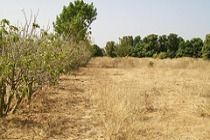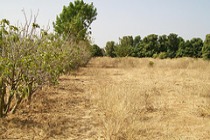Is jatropha the future for biodiesel?
New research investigating the jatropha plant looks to see if the plant, hailed in 2007, by Goldman Sachs, as the future of biodiesel production lives up to its billing.

 New research investigating the jatropha plant looks to see if the plant, hailed in 2007, by Goldman Sachs, as the future of biodiesel production lives up to its billing.
New research investigating the jatropha plant looks to see if the plant, hailed in 2007, by Goldman Sachs, as the future of biodiesel production lives up to its billing.
As much as 35 per cent of the fruit from jatropha, is made up of an oil, which once extracted is suitable for biodiesel production. One TIME Magazine report predicted yields of up to six tonnes of diesel per acre.
Scientist Karl Hilding Thunes, from the Norwegian Forest and Landscape Institute, working on the project said: “Jatropha has undoubtedly been over-hyped somewhat in recent years. Expectations have become more realistic now, but there is no question that jatropha has major potential.”
Funded by the Research Council of Norway’s, “Norway – Global Partner” programme, the new studies, conducted in Ghana and Niger, examined the best way to cultivate the plant and the risks which can occur from pests.
Jatropha is a plant native to Central America and now grown in India, Africa and South America. The plant and fruit, although toxic to people and most animals, is enjoyed by grasshoppers, beetles, butterflies and thrips. Dr Thunes however, found little threat to crop plantations in Africa, if properly tended.
The plant, has been hyped as almost indestructible due to its ability to thrive in hot, dry climates but Dr Thunes said this is not the case: “It is not as invincible as some people have trumpeted. It’s true that jatropha does well in quite extreme conditions, but in order to yield plenty of fruit for producing oil, it needs sufficient water, fertilizer and care.”
This is a controversial issue, however and, as with all biofuels, debates surround the quantities of water and fertilizers that are needed for production, reducing the environmental benefits.
Jatropha’s ability to grow in soil poorly suited for edible crops, however, means it poses a limited threat to food production in developing countries. Throughout Africa, the plant represents an opportunity for localised oil production to fuel small power plants.
Worldwide the plant’s potential has already been recognised, with many airlines trialling the fuel including Japan Airlines, Air China, and Air New Zealand, who test flew their Boeing 747 on 50% biofuel in 2008.
Image: TreesForTheFuture | flickr






